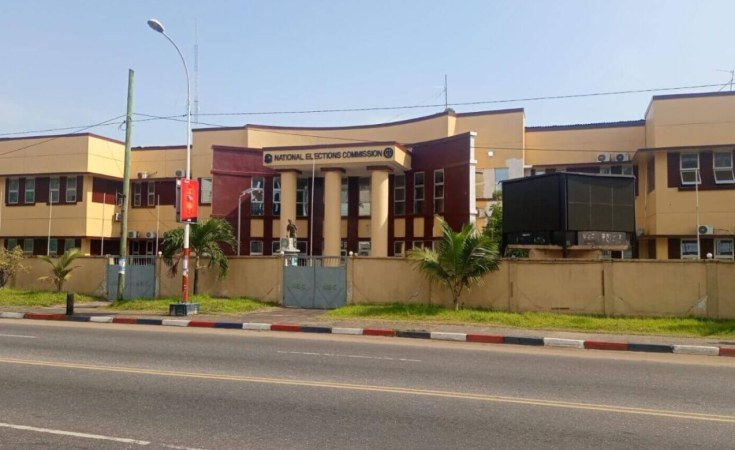-- Says Afrobarometer survey on the evaluation of Liberia's democracy
Public trust in the National Elections Commission (NEC) has dropped to "near historic lows," a new survey report from Afrobarometer has revealed.
The survey results, which are being released as NEC prepares to conduct one of the most fiercely contested presidential elections in the country's history, reveal a trend of historically low public trust that has persisted since 2018."
This comes as the electoral body grapples with the challenges of ensuring a seamless first phase of the recently concluded biometric voter registration, leading to frustration and disappointment among many citizens who were unable to register due to technical issues such as the frequent shortage of biometric cards."
"Only 34% of Liberians say they trust the National Elections Commission somewhat or a lot, while more than 66% express just a little or no trust at all in the election-management body. Trust in the NEC has declined by 10 percentage points since 2018, the Afrobarometer says.
"The country's transition from manual voter registration to the use of a biometric voter registration system is an opportunity for the NEC to build public confidence if it produces a credible voter roll," Afrobarometer noted.
Afrobarometer is a pan-African, non-partisan, non-profit survey research network that provides reliable data on Africans' experiences and evaluations of democracy, governance, and quality of life.
And its nine rounds of surveying on the state of democracy in Liberia revealed a shocking detail: a majority of Liberians feel that elections fail to ensure that their views are represented by legislators.
It is 61% for House Representatives and 60% for Senators, but the survey also finds that most Liberians believe that elections provide an opportunity to remove leaders from office whom they do not want.
"Majorities say elections do not work well to ensure that members of the House and Senators reflect the views of voters. But a majority says elections do enable voters to remove office leaders who do not do what the people want (55%)."
"And an overwhelming majority (85%) of citizens say the 2017 elections were completely free and fair. Also, 24% believe that the elections were free and fair with minor problems," says Afrobarometer, whose survey has a representative sample of 1,200 people.
The sample was distributed across regions across the country in proportion to its share of the national population, and respondents were interviewed face-to-face in the language of the respondent's choice.
Meanwhile, the Afrobarometer survey on the evaluation of Liberia's democracy comes a few weeks after releasing another survey that shows that a growing number of Liberians are thinking about leaving the country after losing confidence in the country.
Two-thirds or more of all those surveyed cited limited economic opportunities and the negative direction of the country as driving factors behind their desire to seek better opportunities overseas.
The survey also revealed that many Liberians believe that the lives of those who emigrate often improve compared to those who stay in the country.
"A majority of Liberians say the country is heading in the wrong direction and offer negative assessments of the country's economic condition and their personal living conditions, and close to seven in 10 Liberians have given at least some thought to emigrating," results from the Afrobarometer survey on the country's economy show.
"More [Liberians] say the country's economic conditions are worse than a year ago, with few people optimistic that things will be better in 12 months' time. Many people [also] think that the lives of Liberians who spent a lot of time abroad improved significantly," it continued.
According to the Afrobarometer survey, Liberians are growing more concerned about their prospects for the future, especially since the country has a large youth population but few employment opportunities. This has led to a sense of uncertainty and nervousness among the population.
The survey also shows that rising economic hardship and unemployment are the primary drivers of this migration trend.


